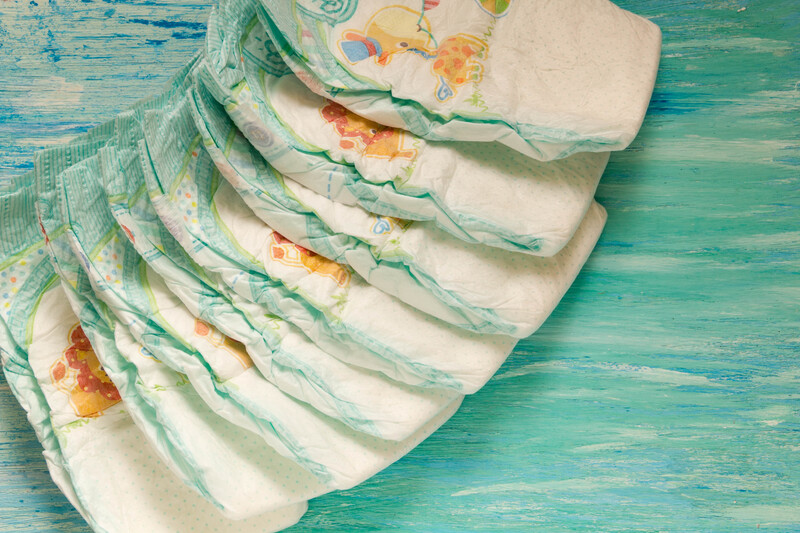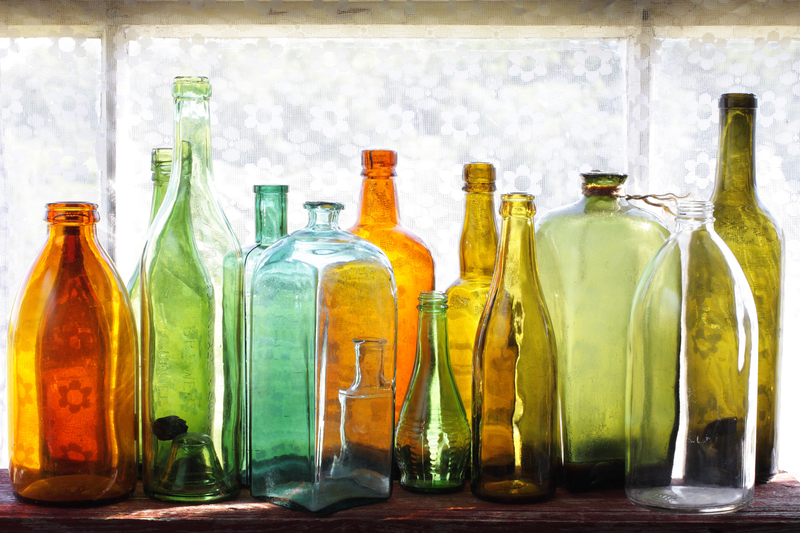Building Future Eco-Warriors with Creative Recycling Education
Empowering the next generation to protect the planet is not just a lofty ideal--it's a vital, tangible goal. As environmental challenges intensify, preparing children and youth to become eco-warriors is more important than ever. Through innovative and engaging methods, creative recycling education holds the key to cultivating ecological stewardship and long-lasting behavioral change. This comprehensive article explores how integrating creative recycling initiatives into educational frameworks can spark environmental passion, foster sustainability skills, and shape responsible global citizens.
Why Recycling Education Matters for Future Generations
Landfills are overflowing, oceans are choked with plastic waste, and natural resources are depleting at alarming rates. In this context, eco-friendly education programs serve as the bedrock for shaping proactive environmental attitudes. Teaching about recycling is not solely about proper waste segregation--it's about embedding respect for natural resources and motivating students to take action within their communities.
- Builds ecological awareness: Young minds understand the interconnectedness of their actions and the environment.
- Encourages sustainable habits: Early exposure to recycling helps instill long-lasting eco-friendly behaviors.
- Empowers student-led change: When students become environmental advocates, they influence families and neighborhoods.
- Supports global sustainability goals: Education aligns community efforts with targets like the United Nations' Sustainable Development Goals.

Changing Mindsets: From Passive Recycling to Future Eco-Warriors
Traditional recycling education once centered on memorizing what could go in different bins. Today, a creative, hands-on approach is essential for fostering eco-warriors for the future. This means going beyond theory into active involvement, critical thinking, and even activism. By weaving creativity into environmental instruction, educators captivate and empower youth to lead in recycling innovation.
Innovative Approaches in Creative Recycling Education
- Project-Based Learning: Students participate in challenges such as designing a classroom recycling system or launching a zero-waste campaign.
- Art from Waste: Workshops where students transform discarded materials into artwork, instilling the principle of upcycling.
- Eco-Competitions: Inter-school recycling contests cultivate friendly rivalry while embedding recycling practices deeply.
- Community Partnerships: Collaborations with local recycling plants or environmental nonprofits create authentic learning.
- Interactive Games: Digital platforms and apps can gamify recycling, making learning fun and memorable.
The Benefits of Creative Recycling Education
Imaginative recycling education delivers far-reaching benefits beyond the classroom. Here's how:
- Boosts creativity: Turning everyday waste into useful or artistic items nurtures imaginative thinking and resourcefulness.
- Builds practical skills: Learning to sort, repurpose, or repair teaches problem-solving and hands-on skills.
- Fosters teamwork: Group projects and campaigns enhance social skills and collaborative spirit.
- Improves environmental literacy: Students gain deep understanding of resource cycles, pollution, and sustainable living.
- Sparks lifelong activism: Early engagement increases the likelihood of continued environmental advocacy into adulthood.
Case Studies: Real-World Eco-Warriors in Action
- Plastic Free Schools: Some schools have adopted zero single-use plastics, with students leading awareness drives and monitoring plastic waste reduction.
- Youth Recycling Startups: Around the globe, teens are launching small businesses that collect, process, and reuse community waste.
- Eco-Art Exhibitions: Creative projects, such as murals made from plastic bottle caps or sculpture installations with recycled metals, showcase the transformative power of art and sustainability.
These examples highlight how creative recycling education channels environmental passion into tangible impact.
Incorporating Creative Recycling into School Curriculum
For future eco-champions to flourish, creative recycling activities must become integral to learning environments. Here's how educators, school leaders, and parents can infuse sustainable thinking into every subject:
- STEM Learning: Use recycled materials for science experiments, engineering projects, or even coding challenges related to waste management.
- Visual Arts: Assign upcycling art projects or design eco-posters promoting responsible recycling.
- Social Studies: Explore the history of waste, the global impact of plastic pollution, and cultural differences in recycling practices.
- Language Arts: Encourage students to write essays, poems, or stories reflecting the journeys of recycled objects.
- Math: Integrate data analysis by tracking school or community recycling rates over time.
School eco-clubs, green councils, and community organizing ensure students translate classroom lessons into real-world action. These experiences build leadership, organizational, and communication skills essential for tomorrow's eco-warriors.
Engaging Families and Communities in Recycling Education
No recycling education is complete without the involvement of families and the broader community. After all, children and teens have the power to influence household and neighborhood behaviors, making them catalysts for community-wide change.
How to Mobilize Families and Community Members
- Family Recycling Challenges: Monthly competitions to encourage at-home waste separation and creative upcycling projects.
- Community Clean-Ups: Student-organized events that clear litter and spread recycling knowledge through action.
- Local Recycling Ambassadors: Students lead neighborhood education campaigns, distributing flyers and demonstrations.
- Parent-Teacher Collaborations: Workshops where parents learn best practices for recycling and waste reduction.
- Partnerships with Local Businesses: Collaborate on refill programs, eco-friendly packaging, or recycling drives to reach wider audiences.
Addressing Barriers to Effective Recycling Education
While enthusiasm for creative recycling education is growing, several challenges remain. Tackling these obstacles is crucial for empowering aspiring eco-heroes:
- Lack of Resources: Some schools lack bins, materials, or funding. Creative solutions--such as using donated materials--can fill these gaps.
- Limited Teacher Training: Continuous professional development on sustainable education principles is essential.
- Community Resistance: Changing established habits requires culturally sensitive approaches and persistent engagement.
- Inequitable Access: Ensure all students, including those in underserved areas, can benefit from quality recycling education.
By addressing these barriers and adapting solutions to local contexts, educators can build a more inclusive and effective program for future environmental leaders.
Inspiring Environmental Growth with Creative Recycling Ideas
Active programs nurture eco-warriors by making recycling relatable and exciting. Here are some outstanding creative recycling education ideas:
- Eco-Design Challenges: Host competitions for the most innovative uses of recycled materials--think solar ovens made from pizza boxes or furniture from old pallets.
- Recycled Fashion Shows: Students design and model clothing crafted from plastic bags, newspaper, or other discarded items, showing that style and sustainability can coexist.
- Green Science Fairs: Projects focusing on composting, water filtration, and DIY recycling inventions inspire STEM interest.
- "Recycle and Write" Workshops: Use recycled paper and materials for creative writing journals or zines focusing on the environment.
- Community Art Installations: Large-scale public artworks from waste raise awareness and beautify communities.
All these activities share the core aim: to blend fun, learning, and environmental action, forging the mindset of a true eco-warrior.
Utilizing Technology in Recycling Education
In our digital age, technology amplifies the reach and effectiveness of environmental programs. Smart tech usage can transform recycling education into an interactive, personalized, and results-driven experience:
- Apps and Online Games: Digital platforms teach sorting rules and track recycling efforts, motivating students through rewards.
- Virtual Field Trips: Students visit recycling plants or landfill sites via video, enabling first-hand (but safe) learning.
- Social Media Campaigns: Student-created content can "go viral," magnifying the messages of responsible recycling.
- QR-code Scavenger Hunts: Kids use their devices to follow clues and learn facts about recycling and local drop-off points.
Integrating Creativity and Technology for Deeper Impact
Combining digital tools with hands-on creative projects ensures students not only learn about recycling but live it daily.

Measuring the Impact of Creative Recycling Education
Assessing success means looking beyond traditional grades. Educators and communities can track the growth of future eco-warriors through:
- Behavioral Change: Observe improvements in recycling habits at home and at school.
- Waste Reduction Metrics: Track changes in the volume of unsorted trash versus recycled materials.
- Community Engagement: Monitor participation in clean-ups, campaigns, or art events.
- Student Initiatives: Watch for student-led projects or local activism inspired by recycling education.
Regular feedback and reflection ensure programs remain relevant and impactful, inspiring constant improvement and innovation.
Conclusion: A Green Legacy Starts Today
Preparing young people for environmental responsibility is one of the most important investments of our time. By weaving creative recycling education through schools, families, and communities, we ignite the spark of environmental stewardship--the foundation of a thriving, sustainable future.
Together, we can build the next generation of eco-warriors: individuals empowered with knowledge, creativity, and compassion to shape a cleaner, greener world for all. Start today--embrace the power of creative recycling education and nurture tomorrow's environmental heroes!
Further Resources on Creative Recycling Education
- Eco-Schools: www.ecoschools.global - International program supporting student-led environmental initiatives.
- Recycle Now: www.recyclenow.com - UK-based resource for recycling in communities and schools.
- Earth Day Network: www.earthday.org - Ideas, activities, and toolkits for environmental education.
- National Wildlife Federation Eco-Schools USA: www.nwf.org/Eco-Schools-USA - Promotes eco-friendly projects and recycling in US schools.
Let's rethink, reuse, and revolutionize the way we educate for our planet's future--one creative recycling project at a time.